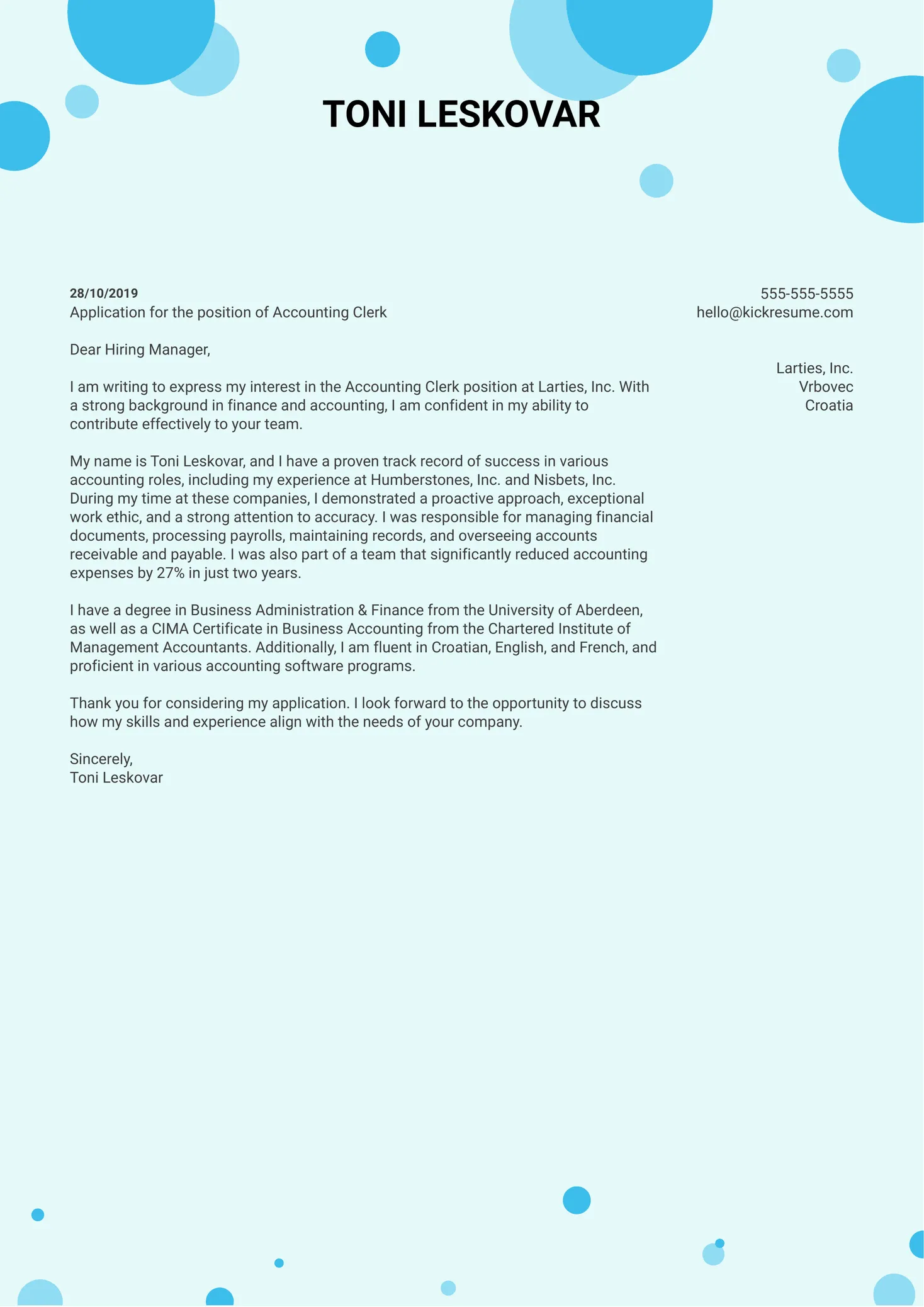A well-crafted cover letter is your first opportunity to make a strong impression on a potential employer. For aspiring accounting clerks, this document is particularly crucial, as it provides a platform to showcase your relevant skills, experience, and personality. This guide provides practical tips to help you create a compelling cover letter that increases your chances of landing an interview. By following these guidelines, you’ll be well on your way to crafting a cover letter that sets you apart from the competition and highlights your qualifications effectively. Remember that the goal is to present yourself as the ideal candidate, someone who possesses the necessary skills and is eager to contribute to the company’s financial operations.
Highlighting Your Skills
Your cover letter should prominently feature the key skills that make you a successful accounting clerk. Focus on demonstrating your aptitude for the essential tasks and responsibilities associated with the role. Ensure your cover letter is a concise and compelling summary of your abilities, tailored to the specific requirements of the job. By emphasizing your skills, you can show how you can contribute value to the company. Consider the skills that are in high demand and most relevant to the role. Provide specific examples from your previous experiences to demonstrate these skills in action. The objective is to make a strong first impression and set yourself apart from the competition. By highlighting your skills, you establish yourself as a strong contender and increase your chances of getting hired.
Attention to Detail
Accounting clerks must possess a keen eye for detail to maintain accurate financial records. It’s essential to emphasize your ability to identify and rectify errors, ensuring data integrity. When highlighting your attention to detail, provide specific examples where you’ve successfully caught and corrected discrepancies in financial documents. This could include reconciling accounts, verifying invoices, or auditing financial data. Describe the processes you use to ensure accuracy, such as double-checking calculations or using software to detect inconsistencies. Mentioning any certifications or training that emphasize accuracy, such as courses in data entry or bookkeeping, can also strengthen your claims. Showing your ability to maintain accuracy is crucial, as it shows your proficiency in the field.
Proficiency in Accounting Software
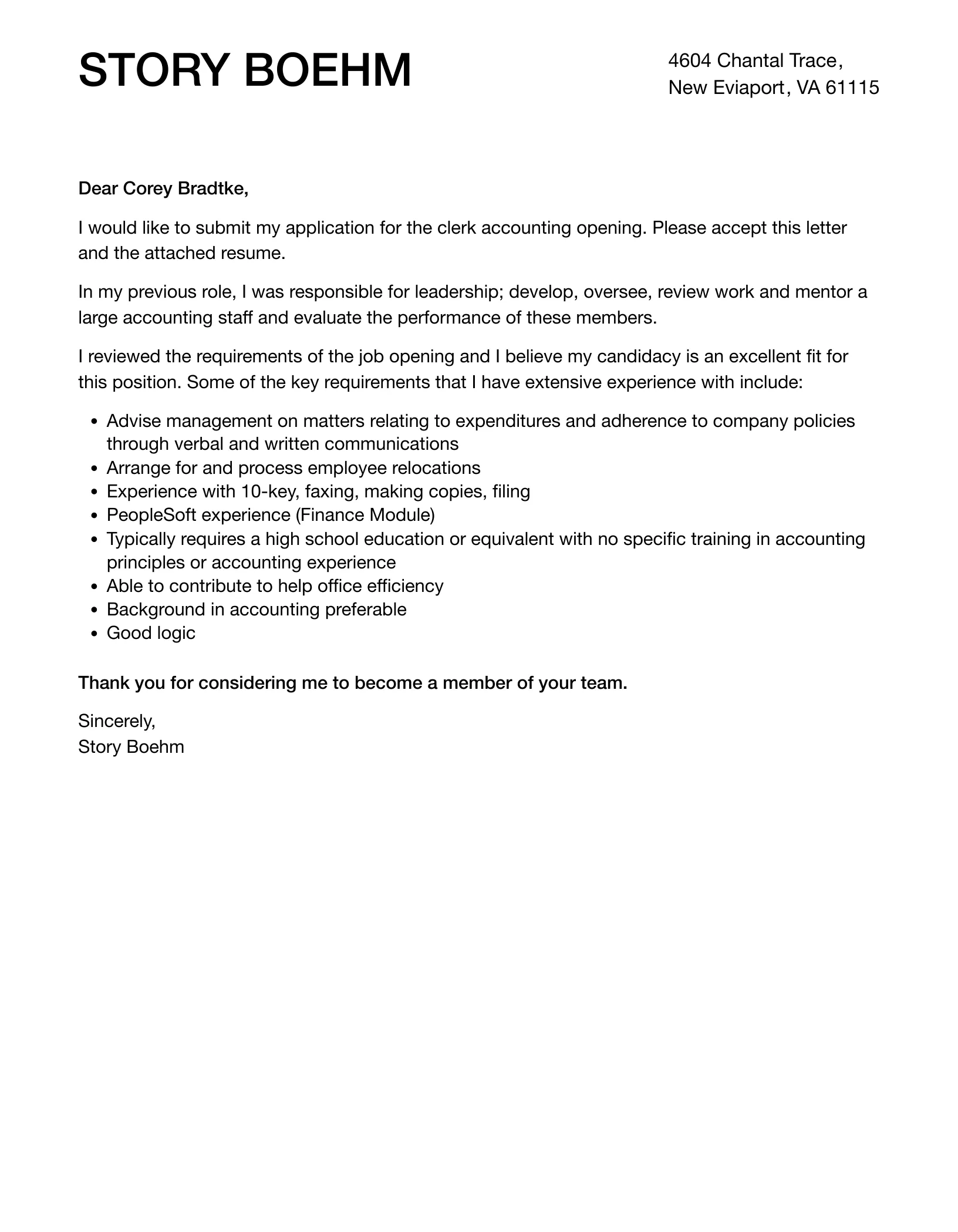
Many accounting roles require proficiency in accounting software like QuickBooks, Xero, or SAP. Make sure you include any software with which you are familiar. If you have experience with specific software programs, list them in your cover letter. Briefly describe your experience with each program, including tasks you’ve performed, such as data entry, generating reports, or processing transactions. If you have any certifications related to accounting software, mention them to validate your proficiency. Highlighting your experience with relevant software demonstrates your readiness to hit the ground running, saving the employer time and training costs. By showcasing your software skills, you can show that you are proficient in the tools used in modern accounting practices.
Strong Communication Skills
Effective communication is vital for accounting clerks, who often interact with colleagues, clients, and vendors. Highlight your ability to communicate clearly and concisely in both written and verbal forms. Provide examples of how you’ve communicated financial information to non-financial audiences, such as explaining complex reports to colleagues or clients. Demonstrate your experience in composing professional emails, reports, and other communications. Mention any experience in presenting financial data or participating in meetings. Highlighting your communication skills shows that you can work effectively with others and convey information accurately and professionally. Communication is key in any workplace, so showcase your talent in this area, as it makes you a strong potential candidate.
Showcasing Relevant Experience
Your cover letter should highlight your past experiences that align with the accounting clerk role. Focus on experiences that demonstrate your understanding of accounting principles and your ability to perform relevant tasks. Be sure to tailor your cover letter to the job description by carefully reviewing the employer’s requirements and expectations. Providing details on your previous accounting experiences will give you a head start and demonstrate your ability to fulfill the role. For instance, mention your experience in accounts payable, accounts receivable, data entry, or financial reporting. Describe the tasks you performed in each role and the results you achieved. By showcasing relevant experience, you show that you’re prepared for the responsibilities that the job demands.
Quantifying Accomplishments
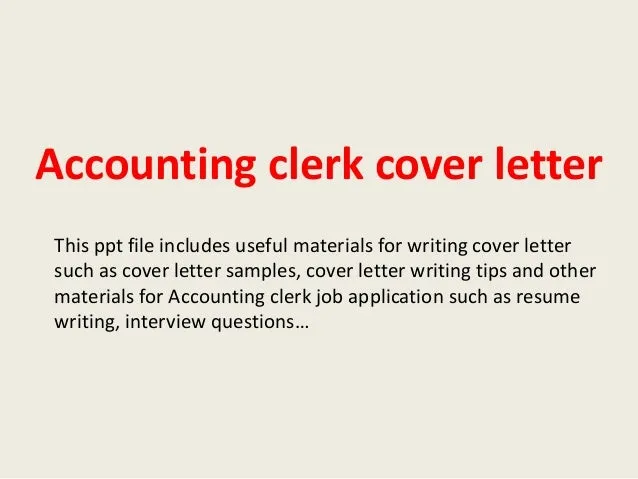
Whenever possible, quantify your accomplishments to demonstrate your impact. Instead of simply stating your responsibilities, use numbers and metrics to illustrate your achievements. This could include the number of invoices processed, the accuracy rate of your data entry, or any cost savings you helped achieve. For example, you could state, ‘Managed accounts payable for over 100 vendors, reducing processing time by 15%’ or ‘Maintained an accuracy rate of 99.9% in data entry, minimizing errors and improving financial reporting efficiency.’ Quantifying your achievements provides concrete evidence of your skills and abilities, making your cover letter more impactful and memorable. Demonstrating your successes in a quantifiable way will help you stand out from the rest of the candidates.
Tailoring to the Job Description
Customize your cover letter for each job application. Carefully read the job description and identify the key requirements and qualifications. Then, adjust your cover letter to directly address these requirements. This shows that you’ve taken the time to understand the role and that you are a good fit for the company. Mention specific skills, experiences, or software proficiencies that the job description highlights. Use keywords from the job description throughout your cover letter to ensure your application gets noticed. Tailoring your letter demonstrates your interest in the position and shows that you’ve taken the time to consider the specific needs of the role. Ensure your cover letter reflects the company’s values, culture, and specific expectations for the role. By focusing on the specific requirements, you can increase your chances of getting an interview.
Formatting and Structure
A well-formatted cover letter is easy to read and visually appealing. Use a professional font, such as Arial or Times New Roman, and keep the font size between 10 and 12 points. Use clear headings and subheadings to break up the text and make it easy to scan. Start with a professional greeting, such as ‘Dear [Hiring Manager name]’. The body of your cover letter should be concise and focused, using clear paragraphs. Use bullet points to highlight key skills or accomplishments. Maintain consistent spacing and formatting throughout the document. Proofread your cover letter multiple times to eliminate any errors in grammar, spelling, and punctuation. A clean and well-structured cover letter shows attention to detail and professionalism. Ensure that your cover letter is easy to read and free from any errors.
Professional Tone and Language
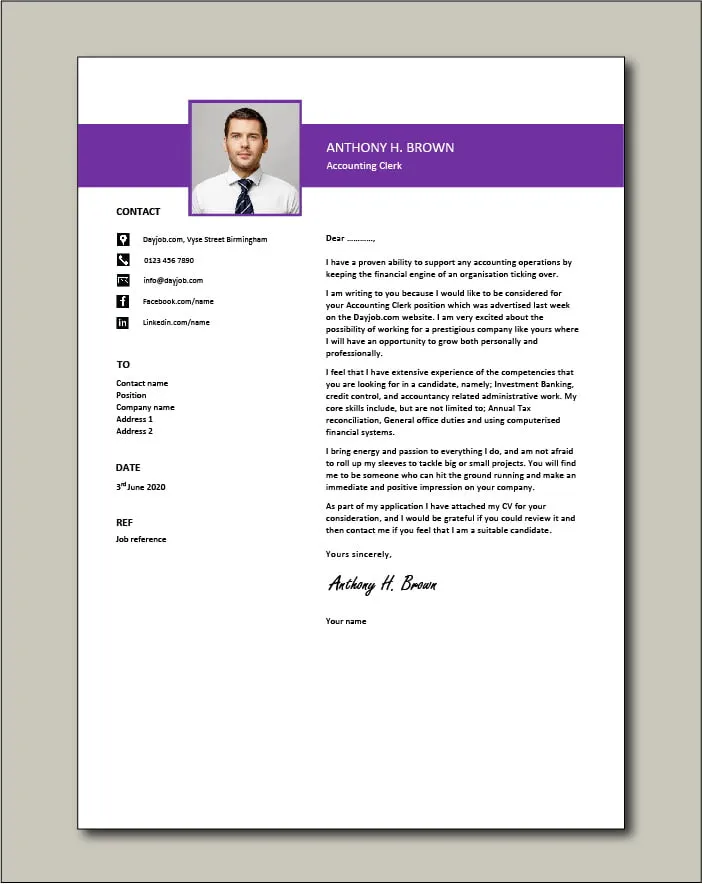
Use a professional and formal tone throughout your cover letter. Avoid slang, colloquialisms, and overly casual language. Maintain a respectful and courteous tone, even when discussing your achievements or experiences. Be concise and to the point, avoiding unnecessary jargon or overly complex sentences. Use active voice to make your writing more direct and engaging. Demonstrate confidence in your abilities, but avoid being arrogant or overbearing. Make sure your writing is clear, concise, and easy to understand. The professional tone and language that you use will give a good impression and make you a more desirable candidate.
Proofreading and Editing
Proofreading and editing are essential steps in crafting a cover letter. Errors in grammar, spelling, and punctuation can negatively impact your chances of getting hired. Always proofread your cover letter multiple times, looking for any mistakes. Read your cover letter aloud to catch any awkward phrasing or typos. Ask a friend, family member, or career advisor to review your cover letter and provide feedback. Make sure that your name, the hiring manager’s name, and the company’s name are accurate. Check that all the information is correct and up to date. Proofreading and editing are the final steps. A well-proofread cover letter demonstrates your attention to detail, making it more likely that you’ll make a strong impression on potential employers. Ensure your cover letter is free from any errors.
Call to Action
Include a clear call to action at the end of your cover letter. This tells the hiring manager what you want them to do next. State that you are eager to discuss your qualifications further. Express your interest in an interview and provide your contact information, including your phone number and email address. Thank the hiring manager for their time and consideration. End with a professional closing, such as ‘Sincerely’ or ‘Best regards’, followed by your name. A clear call to action makes it easy for the hiring manager to take the next steps. Providing a call to action helps demonstrate your interest in the position and makes it easier for the hiring manager to take the next steps. The call to action also demonstrates your eagerness to move forward in the hiring process.
Expressing Enthusiasm
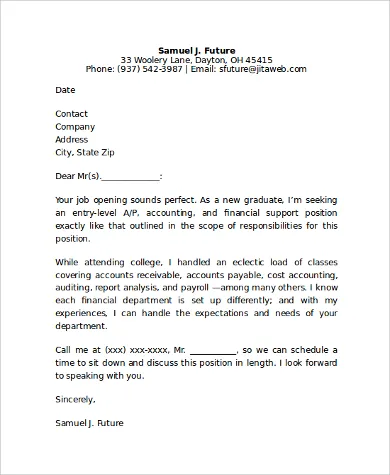
Show genuine enthusiasm for the position and the company. Demonstrate that you’ve researched the company and understand their mission and values. Explain why you’re interested in working for them. This helps you make a stronger connection with the hiring manager. Express your excitement about the opportunity to contribute your skills and experience. Tailor your letter to the specific company and role, showing your interest in the company’s goals. Expressing enthusiasm makes your application more memorable and makes you seem like a good fit for the company culture. Enthusiasm makes a candidate more attractive and shows initiative and passion. Therefore, demonstrate your enthusiasm throughout your cover letter to make a positive impression.
Following Up
After submitting your cover letter and resume, follow up with the hiring manager. A follow-up shows your continued interest in the position and demonstrates your professionalism. Send a brief email thanking the hiring manager for their time and reiterating your interest. Mention a specific skill or experience you discussed in your cover letter. In your follow-up email, you can ask about the status of your application or if the hiring manager needs any additional information. Be sure to follow the company’s guidelines for follow-up, if they are provided. If you don’t hear back within a reasonable timeframe, you may send a second follow-up email. Following up demonstrates your dedication and interest in the role.
In conclusion, a well-crafted cover letter is essential for any accounting clerk seeking employment. By highlighting your skills, showcasing relevant experience, quantifying your accomplishments, and following the tips outlined in this guide, you can create a cover letter that stands out from the competition. Remember to tailor your cover letter to each job description, use a professional tone, and proofread carefully. With a compelling cover letter, you’ll significantly increase your chances of landing an interview and ultimately securing your desired accounting clerk position. Good luck with your job search!
